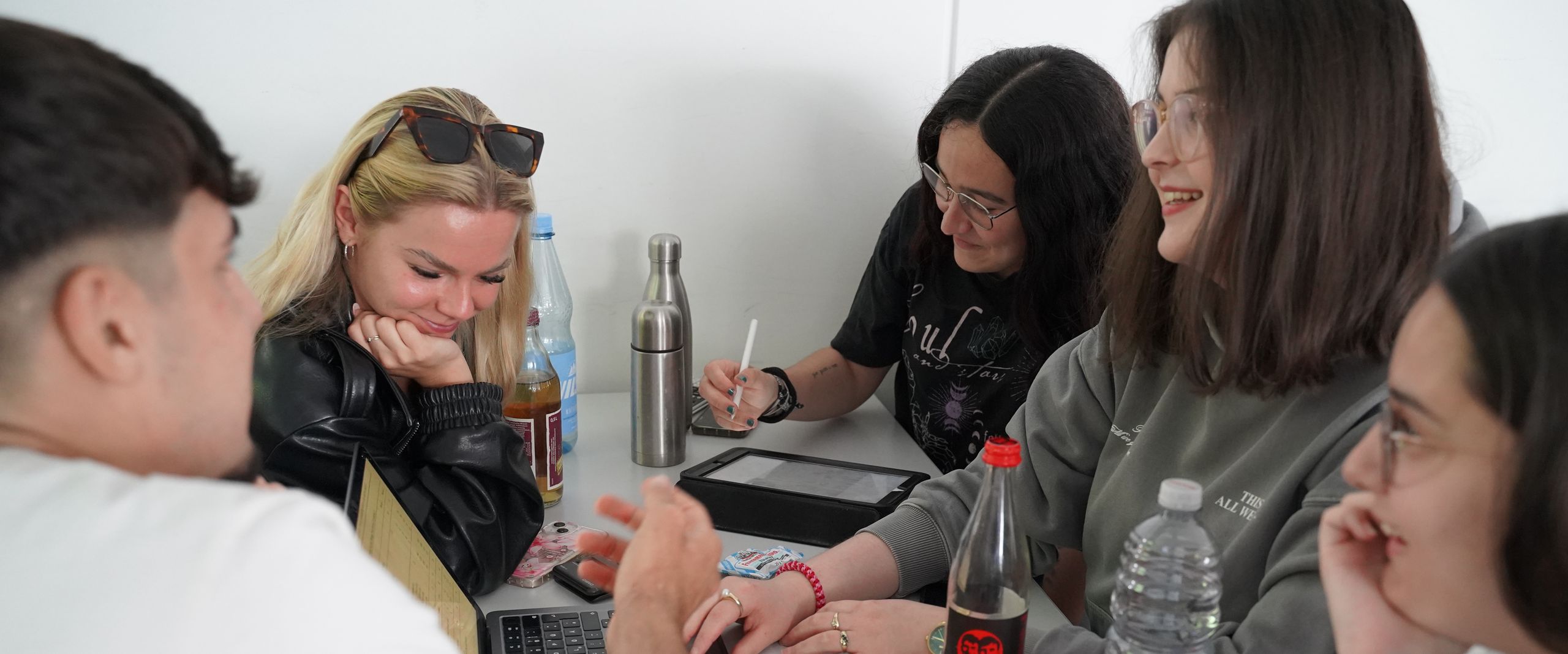
With the principle of ‘learning by doing’, business simulation games offer the opportunity to directly apply acquired knowledge in a realistic environment. This is because they provide models of typical situations and simulate the reality of a company. As in practice, a ‘management team’ deliberates on economic decisions and applies analysis and forecasting methods. Several simulated companies enter the competition as a challenge. Students of the STARS-EU Alliance were able to benefit from such a business simulation in an international context. The STARS-EU partner universities Instituto Politécnico de Bragança (IPB, Portugal), Universidad de La Laguna (Tenerife, Spain) and Hochschule Bremen (HSB) - City Univer ity of Applied Sciences were involved. Uniwersytet Gdański (Poland) - one of HSB's oldest cooperation partners - also took part.
Under the title ‘Doing Business in Europe as Team Challenge’, the event took place with around 30 students in the summer semester of 2025 in Bremen and online as a so-called BIP - Blended Intensive Programme.
The BIP was divided into two phases: a virtual phase and a physical mobility week in Bremen. During the virtual mobility phase, students took part in four online sessions in which the thematic focus areas were presented - including international accounting, legal and cultural frameworks and team building.
This first phase was concluded with a group presentation. In the physical phase, the students worked intensively in their simulated companies, took part in a company visit and an excursion to Hamburg and attended interactive seminars. Each team presented its final results at the end of the week. The final event was the award ceremony for the team that achieved the highest profit and the best planning accuracy under challenging conditions.
‘BIPs offer a unique opportunity to integrate internationalisation into the curriculum without the need for long-term mobility,’ says Prof. Dr Stefan Veith from Faculty 1 - Business and Economics at HSB. He organised the BIP together with his colleague Prof. Dr Martina Röhrich at HSB. She adds: ‘BIPs enable students to work in different teams on real-life problems and broaden their academic and intercultural perspectives.’ For lecturers, BIPs offer a platform for innovation in teaching, cross-institutional collaboration and a deeper understanding of the European higher education landscape.
"I found it very enriching to work with students of different nationalities," says student Maria Inês Teixeia from the IPB in Portugal. ‘The BIP offered a wonderful mix of learning and spending time together.’
Diego Morera Pérez from the University of La Laguna in Tenerife adds: "I thought it was great to be able to improve my English through this teaching format. I have gained more confidence in communicating with people in English."
The BIP was financed with Erasmus funds totalling 6,000 euros. The Erasmus Office of the International Office of Hochschule Bremen provided support with the organisation.